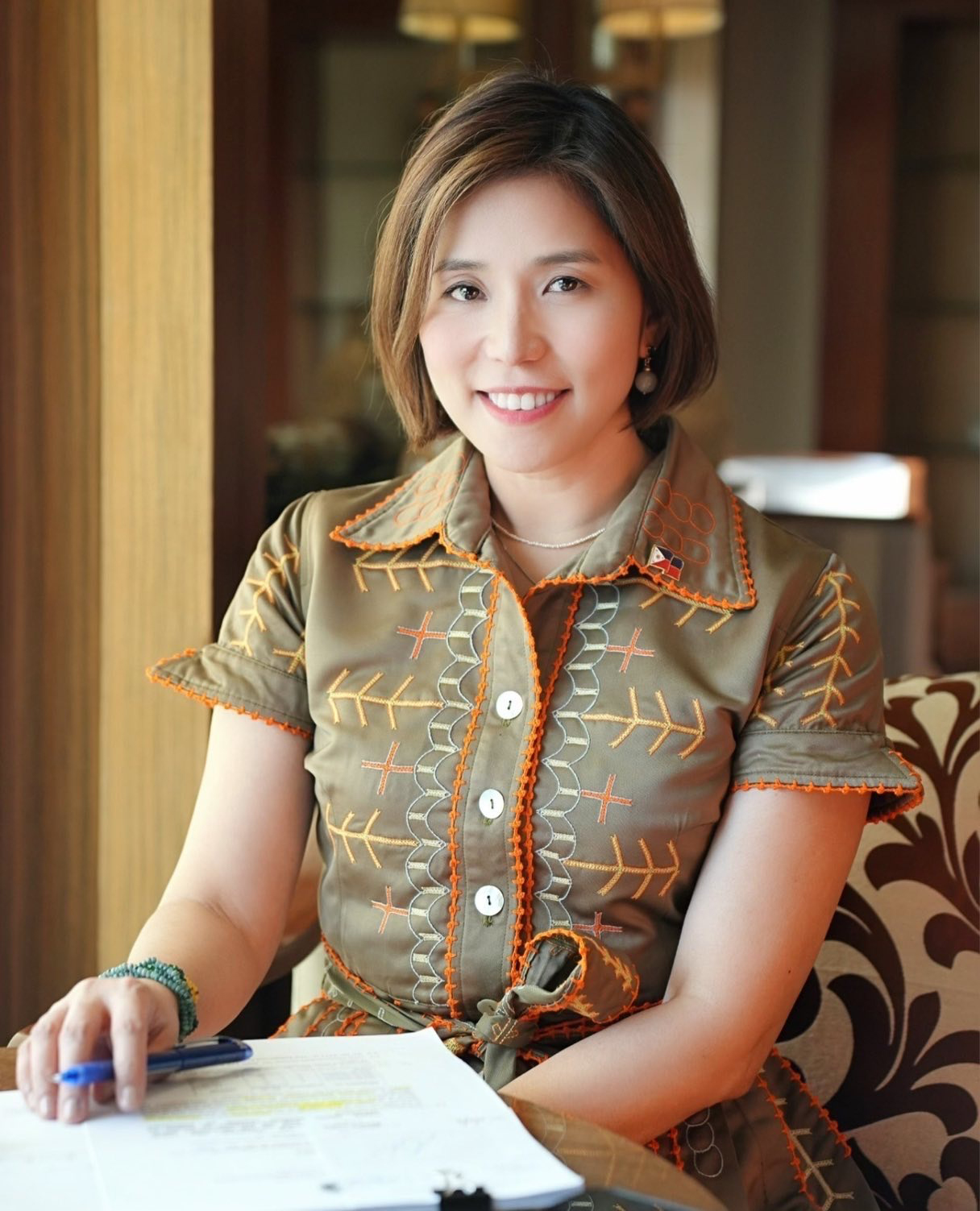Championing the Philippine halal economy for greater prosperity
BEYOND BUDGET

Assalamu alaikum wa Rahmatullahi wa Barakatuh.
I was privileged to speak during the Philippine Halal Economy Festival organized by the Department of Trade and Industry (DTI) on Nov. 22, 2023. As the only woman Muslim Cabinet member and a proud daughter of Mindanao, I expressed my appreciation for being given the honor to be with my Muslim brothers and sisters as well as halal advocates at this event that recognizes our culture, tradition, and way of life.
As I highlighted during my speech, I champion going halal and assure my unequivocal support for the initiative. Halal is more than just a dietary restriction in observance of the faith. It also provides an understanding of Islam, the world’s second-largest religion which was brought to the Philippines 643 years ago. This fosters a deeper appreciation of the Muslim culture which promotes peace and consequently, progress. Further, halal-certified food is a healthier alternative as it is guaranteed to be devoid of alcohol, chemicals, pork, and its derivatives — an option that can be adopted by everyone. Halal cuisine is also extremely tasty! I can attest to this since I grew up in a halal household. Thus, in my own way, I have been promoting this by serving halal food at the Department of Budget and Management (DBM) on occasions, especially during our Eid al-Fitr celebration.
I firmly believe that the Philippine halal economy holds so much potential for growth and presents opportunities for Muslim Filipinos and the nation. Market studies project that the halal food and beverages’ market size will reach nearly US$4 trillion by 2028. With around 11 million Muslim Filipinos or about 10 percent of our population, as estimated by the National Commission on Muslim Filipinos (NCMF), and a growing number of non-Muslim consumers, innovative halal products strategically marketed in mainstream channels can easily capitalize on this trend. As the demand grows, so do the opportunities! In addition, the global halal economy is expanding to cover not only the food and beverage sector but the entire lifestyle industry, ranging from fashion, health, media, and recreation.
Thus, I trust that when we stand united as a country, we can seize the opportunity to tap into the vast market of this sunrise industry to achieve prosperity. I, therefore, laud the Departments of Trade and Industry, Agriculture, Tourism, Health, Science and Technology, and Foreign Affairs, as well as the Bangko Sentral ng Pilipinas, Mindanao Development Authority, and the NCMF, for utilizing a whole-of-government approach to pursue the Philippine Halal Export Development and Promotion Program under Republic Act No. 10817, also known as the Philippine Halal Export Development and Promotion Act of 2016. The law aims to promote the growth and ensure the integrity and quality of Philippine halal exports.
Through the law, our country has expressed its commitment to harmonizing local standards with international standards and complying with standards of halal products, processes, and services. This includes adopting measures to make halal exports more competitive through research and product development, quality assurance measures, and value-adding mechanisms. Our government also aims to protect consumers and users of halal products from unscrupulous agricultural, manufacturing, and trade practices.
Moreover, we are fortunate that President Ferdinand R. Marcos Jr. (PBBM) is committed to the development and prosperity of Muslim Mindanao and recognizes the significance of Islam in our history and culture, staunchly advocating for the development of the halal industry. During his Malaysia state visit in July, he and Prime Minister Dato’ Seri Anwar Ibrahim discussed priority areas for cooperation and agreed to closely coordinate efforts to build capacity in the Bangsamoro Autonomous Region in Muslim Mindanao (BARMM), particularly in sectors such as the halal industry and food security, among others. PBBM emphasized in a statement, “With Malaysia being one of the leading halal economies in the world, cooperation in this sector would mutually benefit the growth of our respective halal ecosystems.”
I agree with DTI Secretary Alfredo Pascual when he said that “our micro, small, and medium-sized enterprises, or MSMEs, are at the forefront of our halal initiatives, poised to reap significant benefits.” The agency’s efforts to promote halal industry development by empowering MSMEs to participate in the global ecosystem, through capacity-building and financial support, are worth recognizing. Armed with its national halal strategy, it aims to generate ₱230 billion in trade and investments and create 120,000 jobs over the next five years. The plan includes halal-friendly travel and tourism, Islamic finance, fashion, halal pharmaceuticals, and halal cosmetics sectors.
I am also glad to know see that our international collaborations, including bilateral agreements with key players in the halal industry, such as the Emirates Authority for Standards and Metrology (ESMA), the International Halal Accreditation Forum (IHAF), Brunei Darussalam, and Mutual Recognition Agreements with Malaysia, Indonesia, Thailand, and most Gulf Cooperation Council (GCC) members, fortifying our position in the global market.
On our part at the DBM, BARMM, as one of the key focal points in our development goals, is allocated ₱80.6 billion to ensure inclusivity throughout the region. This is complemented by capacity-building training and assistance to the region’s Public Financial Management practitioners toward the effective and efficient delivery of public service through sound management of financial resources. We also fully support the countdown to the 650th anniversary of Philippine Muslim History and Heritage in 2023 which promotes Muslim Filipinos’ cultural heritage.
Beyond budget, the Philippine halal economy is expected to contribute to the Bagong Pilipinas vision of President Ferdinand R. Marcos Jr., where there is prosperity from greater economic activity, inclusivity, quality employment opportunities, and an enhanced quality of life for all Filipinos. Thus, let us support this sunrise industry. It is high time we go halal. And when we go halal, let us go local!
(Amenah F. Pangandaman is the current Secretary of the Department of Budget and Management.)